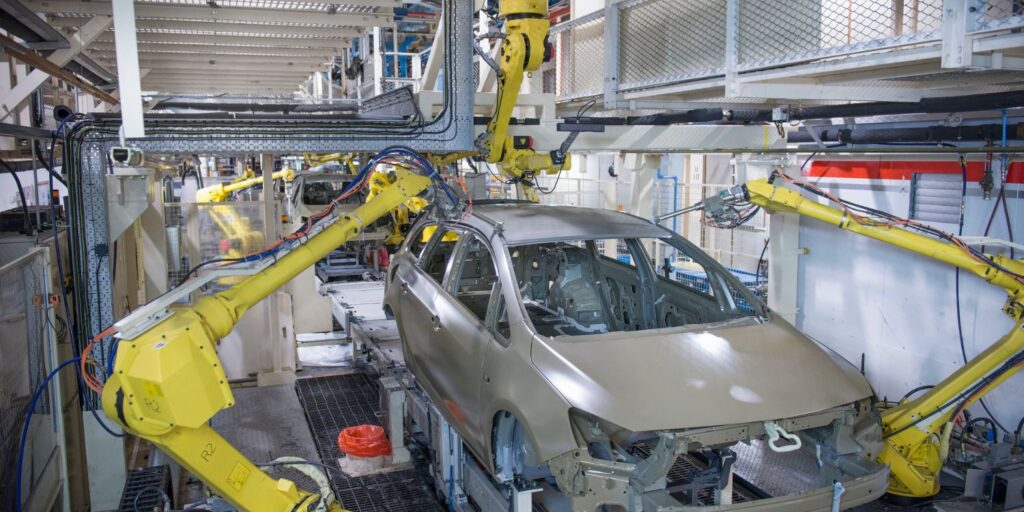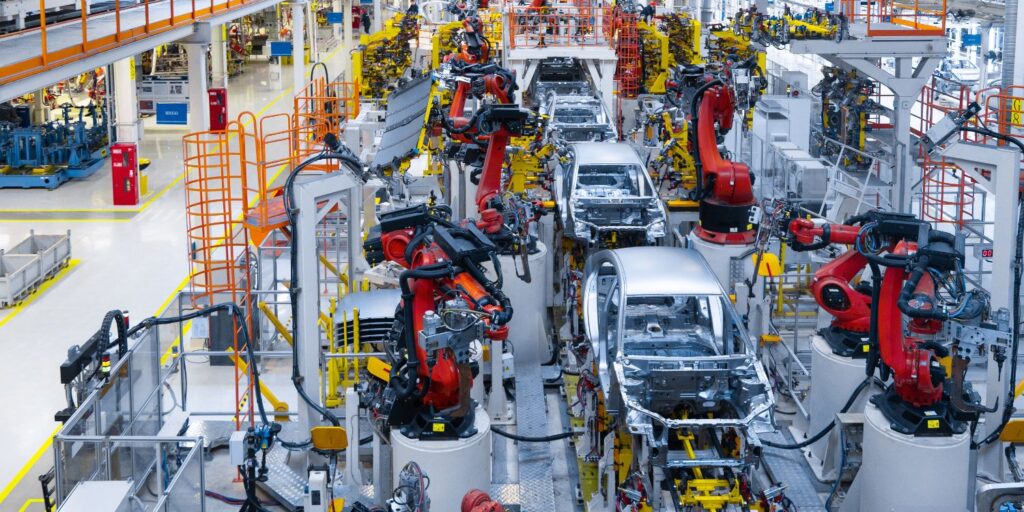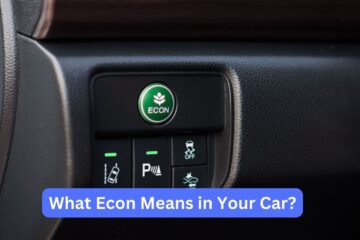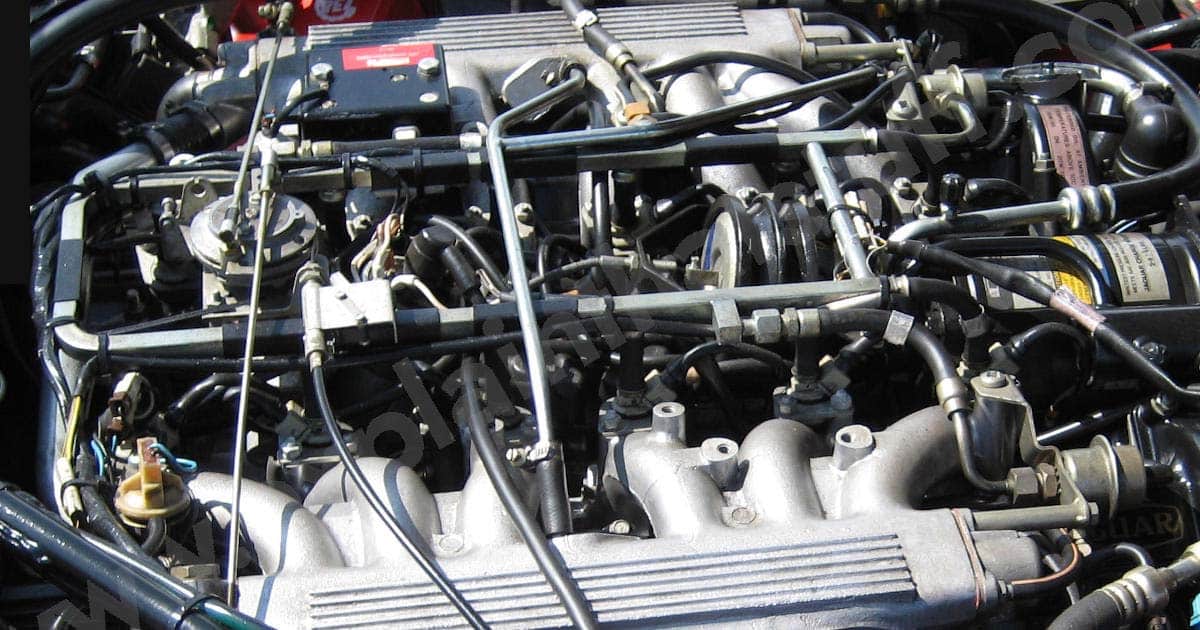Have you pondered over the involved procedure and expenditures required to manufacture a glistening new automobile you spot on the road?
The manufacturing cost encompasses an intricate combination of various aspects – from the utilized materials to the implemented technologies.
Here, we’ll investigate the nuanced elements that shape a car’s final price tag, unraveling the complexities of production expenditures.
Factors Affecting the Cost of Making a Car
Making cars involves many important things. Labour costs, raw material prices, and factory overhead expenses play a role. Several key factors influence car manufacturing costs:
Materials
The type and quality of materials used significantly impact the cost of making a car. From lightweight aluminum alloys to high-strength steel, each component contributes to the overall expense.
Labor
Labour expertise proves vital in production procedures. Monetary recompense, advantages, plus workplace circumstances together shape labour expenditures.
Technology
Technological breakthroughs like automation and robotics changed car making. Though they make building smoother, big money is needed upfront.
Research and Development
Cars need tons of research! Designing new types costs loads of money. Advanced engineering is hard.
Making cool vehicles involves major spending on (research and development). At the same time, improving performance and meeting regulatory standards.
Read more about Estimate How Much Does It Cost to Build a Car Wash.
Breakdown of Costs in Car Manufacturing
Building automobiles encompasses multiple phases, each incurring particular expenses. Basic components get manufactured first, like engines and frames. Next, assembly line workers construct the vehicle, adding parts system:
Design and Engineering
Before a car rolls off the production line, extensive design and engineering work takes place. This phase encompasses conceptualizing the vehicle, conducting feasibility studies, and creating prototypes.
Production
Production costs encompass everything from sourcing raw materials to assembling the vehicle. Machinery, factory overheads, and quality control measures are all factored into this stage.

Marketing and Distribution
Marketing and distribution expenses cover advertising campaigns, dealership networks, and logistical operations. These costs play a crucial role in promoting and selling the finished product.
Variability in Car Production Costs
The cost of making a car can vary significantly depending on the type and brand:
Economy Cars
Manufacturing costs for economy cars are generally lower due to their simpler designs and fewer luxury features.
Cost-conscious consumers drive demand for affordable transportation options.
Luxury Cars
Luxury cars command higher prices due to their premium materials, advanced technology, and exclusive branding. The elevated manufacturing costs are reflected in the final retail price.
Electric Cars
The emergence of electric cars introduces new cost considerations. While battery technology remains a significant expense, advancements and economies of scale are driving down production costs over time.
Impact of Economies of Scale
Economies of scale play a vital role in reducing per-unit production costs. Mass production allows manufacturers to spread fixed expenses across a larger number of units, resulting in cost savings.
Cost-Saving Measures in Car Manufacturing
To remain competitive, car manufacturers employ various cost-saving strategies:
Outsourcing
Outsourcing certain components or processes to specialized suppliers can reduce production costs and enhance efficiency.

Standardization
Standardizing parts and components across different models enables manufacturers to streamline production and achieve economies of scale.
Lean Manufacturing
Adopting lean manufacturing principles minimizes waste and optimizes production processes, leading to cost reductions and improved productivity.
Environmental Considerations in Car Manufacturing Costs
Environmental sustainability is becoming increasingly important in car manufacturing.
Investments in eco-friendly materials, energy-efficient processes, and recycling initiatives may entail additional expenses but contribute to long-term cost savings and environmental stewardship.
FAQS
Frequently asked questions about car manufacturing are :
Are electric cars cheaper to manufacture than traditional gasoline-powered vehicles?
Electric cars may have higher initial manufacturing costs due to battery expenses, but ongoing advancements and economies of scale are driving down production costs over time.
How do car manufacturers reduce production costs?
Car manufacturers employ various cost-saving measures, including outsourcing, standardization, and lean manufacturing principles, to optimize production processes and minimize expenses.
What role do economies of scale play in car manufacturing costs?
Economies of scale allow manufacturers to spread fixed expenses across a larger number of units, resulting in lower per-unit production costs and increased profitability.
Why are luxury cars more expensive to manufacture?
Luxury cars require premium materials, advanced technology, and meticulous craftsmanship, all of which contribute to higher manufacturing costs compared to economy models.
How much does it cost to manufacture a basic economy car?
The cost of manufacturing a basic economy car can vary, but it typically ranges from $10,000 to $20,000 per unit, depending on factors such as materials, labour, and production volume.
What are some environmental considerations in car manufacturing costs?
Environmental considerations include investments in eco-friendly materials, energy-efficient processes, and recycling initiatives, which may entail additional expenses but contribute to long-term cost savings and sustainability.
What impact do technological advancements have on car manufacturing costs?
Technological advancements, such as automation and robotics, streamline production but entail substantial initial investments, shaping the modern automotive industry’s cost landscape.
How does research and development contribute to car manufacturing costs?
Research and development (R&D) is a significant contributor to car manufacturing expenses, driving innovation in design, performance, and regulatory compliance, albeit at considerable investment costs.
Conclusion
To sum up, the cost of making a car encompasses a multifaceted landscape where every component, from materials to labour and technology, plays a crucial role.
Our exploration has unveiled the intricate web of expenses involved in bringing a vehicle from concept to reality.
From the fundamental materials used, such as lightweight combination and high-strength steel, to the skilled labour required for production, each factor contributes significantly to the overall manufacturing cost.
Technological advancements, including automation and robotics, have not only streamlined production but have also necessitated substantial initial investments, shaping the modern automotive industry.
Research and development serve as the cornerstone of innovation, driving companies to continually push boundaries in design, performance, and compliance with regulatory standards.
The process of making a car entails various stages, each accompanied by its associated costs, spanning from design and engineering to production, marketing, and distribution.
Moreover, the variability in production costs across different types of cars, such as economy, luxury, and electric vehicles, underscores the diverse market demands and manufacturing complexities.
Economies of scale play a pivotal role in reducing per-unit costs, highlighting the significance of mass production in driving efficiencies and competitiveness.
To navigate the dynamic landscape of car manufacturing costs, companies employ a range of cost-saving measures, from outsourcing and standardization to lean manufacturing principles.
Furthermore, the growing emphasis on environmental sustainability is reshaping industry practices, with investments in eco-friendly materials and processes aimed at balancing profitability with planetary stewardship.
In essence, understanding the intricacies of car manufacturing costs offers insights into the evolving dynamics of the automotive sector, where innovation, efficiency, and sustainability converge to shape the vehicles of tomorrow.




